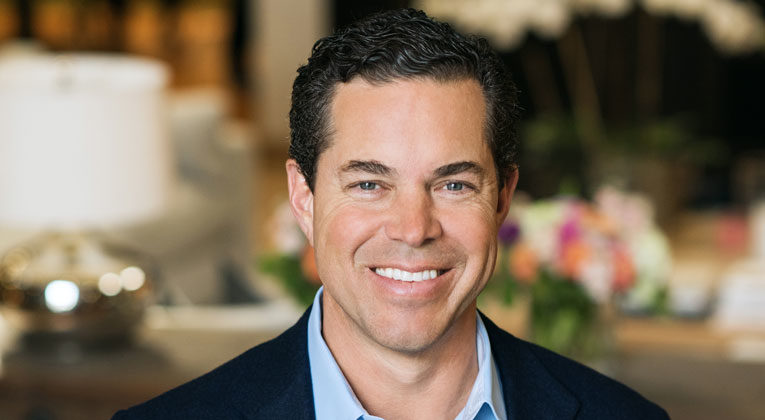By Jason Hughes
I got a call from a reporter asking about my individual position, as well as our company’s position, on a recent California draft Senate Bill (SB 939) that would provide potential rental relief for companies who suffered catastrophic loss of business due to the COVID-19 pandemic. The reporter assumed I would of course support it given my stance on only representing tenants, never landlords, in their commercial real estate transactions. He also assumed I despised landlords–and that I would consider this bill a punch in their collective faces.
After thinking more about the reporter’s erroneous belief of me, I thought it would be helpful to memorialize my thoughts, and therefore formally state our company’s belief in regard to how we think, teach, mentor and conduct our business, about a number of issues.
Do we hate landlords or brokers? Absolutely not! They make our industry better. What I do hate is business owners being disadvantaged by conflicted professionals, especially now, where fiduciary real estate representation can be the difference between a company’s survival or demise.
Given that we only represent business owners and management teams that operate as commercial tenants in their leasing and purchasing of commercial real estate, our perspective is that we are an extension of our clients—whom are always tenants. We are bound by a moral code to provide our clients with the best non-conflicted, transparent and independent representation possible. We treat our clients’ transactions as if they were our own–working to save tenants as much money as possible, while providing them with the best overall value-proposition, optimization and flexibility available for the rent that they pay.
We value landlords and what they contribute to the commercial real estate ecosystem. There are great landlords, mediocre landlords, and bad landlords. While I think society could do without the bad ones, fortunately most landlords fall into the first two tiers. And the great ones are some of the best run companies in the world. They’re extremely sophisticated and make very good business decisions, thinking about their tenants as customers, and reinvesting in the real estate to provide safe, amenity rich and positive places to work. They maintain their product well and hire top employees to take great care of their assets and the companies who lease space from them, and they treat them fairly when tenants need to expand or renew their leases, versus holding them captive. I have some very good friends that are landlords–and overall, I deeply respect them and what they do. This is never a zero-sum game; landlords need tenants and tenants need landlords. Our job is to “broker” a mutually acceptable transaction, and create a level playing field for the tenant in an industry that is manipulated against them, where those commercial real estate firms, acting as dual agents, dramatically tip the scales to the building owners’ benefit.
We also value quality landlord brokers. As with any industry, the good ones are phenomenal, and there are some that just get in the way…or worse. The really successful landlord brokers have a clarity to what they do and for who they serve. They are worthy adversaries, but in a highly respected and strategically challenging way. The good ones are worth their weight in gold, and if I were an office building owner, I’d consider them imperative.
But then we have dual agency–the brokers and brokerage companies who attempt to represent both landlords AND tenants, generally for their own personal financial benefit, and that of their always more dominant customer—the landlord. This is where the system breaks down, and what I have been crusading against for decades. The landlord brokerage industry was built to be the outsourced sales, marketing and management arm of landlords, and should stay in that lane. Instead, it morphed into dual agency as relaxed state laws and powerful lobby groups helped to make it a ubiquitous service offering. The immense conflict of interest created due to the lucrative and recurring cash flow from landlord clients is no match for unsuspecting tenants. Almost universally, tenants lose the jump ball when put in this position, and oftentimes they lose big before they even touch the ball. And as the market moves down and becomes a tenants’ market, those landlord representation firms are going to be called upon to backstop the landlords and try to price support them on the way down—as that is what they should be doing. Brokers advising tenants against the broker’s actual or potential landlord clients are going to be misadvising tenants and should be prohibited from representing tenants by law. When a broker tells a tenant “I know what the landlord needs and what their bottom line is,” which client is the broker now offering to betray the trust of? Are they really going to share confidentialities, or are they just singing from the music they have been given, treating it as truth? The reality is that going to the market and determining what options are available to the tenant is what determines market rent—not what a landlord tells their broker to sell. Tenants as consumers deserve independent representation that can accurately, confidentially and aggressively determine market rent.
As for the draft Senate Bill the reporter asked me about? While it’s still in draft form and currently being modified, I do support the intention of Senators Wiener and Gonzalez, as they are trying to help struggling companies find a lifeline alternative to closing their business and laying everyone off due to the terms and costs of their commercial leases. And from a landlord’s perspective, these are companies that, ultimately, won’t be able to meet their obligations anyways; instead they will slowly deteriorate over time and eventually default. Consider this bill a preemptive maneuver to give companies a fighting chance. If we can find a way to help businesses survive, everyone wins in the long run. Businesses stay open, people stay employed, and landlords have companies to pay them rent. Why should businesses alone bear the brunt of the financial despair the virus has caused? It’s urgent that we keep businesses afloat right now, so let’s figure out how we can throw businesses a lifeline to deal with their suffocating real estate obligations (where bankruptcy or business dissolution is their only way out of long-term leases at the moment) and that, in turn, will ultimately help landlords survive too.
Maybe call it the Shared Sacrifice Bill?
Jason Hughes is founder of Hughes Marino, an award-winning commercial real estate company with offices across the nation. A pioneer in the field of tenant representation, Jason has exclusively represented tenants and buyers for more than 30 years. Contact Jason at 1-844-662-6635 or jason@hughesmarino.com to learn more.











